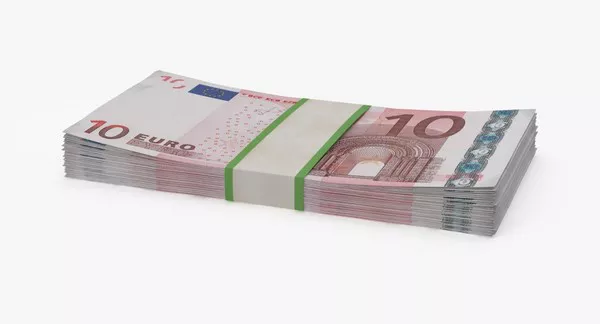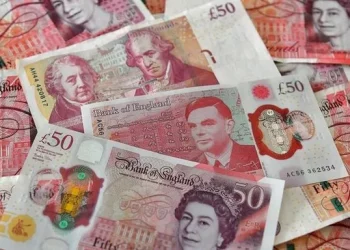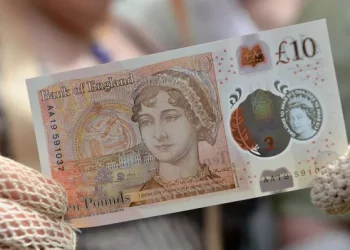If the government fixes the price ratio of domestic credit or statutory to gold or at a level higher than the market determines, that is, if the government sets the maximum price of gold and foreign exchange below the potential market price, the consequences described in Gresham’s Law occur.
The result, of course, is the so-called “foreign exchange scarcity”, which is very inappropriate.
One of the characteristics of an economic good is that its effective supply is not sufficient to meet all demand.
Things that are not in short supply are not economic goods and do not cost money to buy.
Because money must be an economic good, the notion of “non-scarce money” is patently absurd.
However, this scarcity is not “scarce” in the sense that governments complaining about the scarcity of foreign exchange would consider it.
The latter is the inevitable result of the government’s pricing policy.
That means the government’s arbitrary pricing has led to a shortage of supply.
If the government, which relies on inflation to reduce its purchasing power of gold, foreign exchange, goods and services, were to abandon any attempt at control, there would be no “scarcity” -in the sense in which the government uses the word-problem.
Those willing to pay the market price can buy as much as they like.
But the government is determined not to allow the exchange rate to rise (in terms of a depreciating currency).
The government relies on magistrates and police to stop people buying and selling foreign currency at unofficial prices.
In the view of the government and its affiliates, the rise in the exchange rate was caused by a balance of payments deficit and a rush by speculators.
To counteract this disadvantage, the government’s approach was to limit demand for foreign exchange.
After that, only those who needed foreign currency could engage in government-sanctioned trade.
All items deemed unnecessary by the government are no longer allowed to be imported.
Foreign debt service is also prohibited.
Our people are not allowed to travel abroad.
However, the government did not know that such an approach would not “improve” the balance of payments.
If imports fall, exports will also fall.
Nationals who are not allowed to purchase foreign debt and travel abroad do not necessarily store their savings in domestic currency as cash.
They usually increase their purchases of consumer or raw goods, leading to further increases in domestic prices.
The more prices rise, the more exports are hampered.
Now the government is going a step further.
It will be nationalized.
All those who receive foreign currency – for example, through exports – must sell it to institutions at official prices.
If this regulation, which is equivalent to an export tariff, were effectively implemented, exports would be greatly reduced or stopped altogether.
Of course, the government didn’t like the result.
Yet it does not want to admit that, from the government’s own point of view, its intervention has been on the verge of failure and has created a worse situation (here, “worse”).
So the government has adopted a new strategy.
Instead, it subsidises exporters to compensate for the losses caused by its policies.
On the other hand, the government’s foreign exchange control agency still stubbornly believes that the exchange rate has not “really” risen, and it sells foreign currency to importers based on the official rate under the illusion that it is the effective rate.
If so, it amounts to a reward for importers, who can make a lot of money selling imported products in the domestic market.
So the government began to exercise its power again.
It would either raise import tariffs, impose special taxes on importers, or increase the burden on them to buy foreign currency by other means.
That, of course, is how exchange controls work.
But it works only because it effectively recognises market exchange rates.
The income of exporters from foreign trade activities, in addition to the local currency converted at the official exchange rate, plus the subsidy given by the government, sum to the market rate.
The foreign exchange paid by the importer, in addition to the local currency converted at the official rate, plus some special discounts and taxes, is also equal to the market rate.
Because the government monopolizes foreign exchange transactions, foreign trade is in the government’s hands, but this does not affect the exchange rate decision.
It does not matter whether the government considers the real effective exchange rate published in the publication to be illegal.
As long as foreign trade is going on, only a real and effective exchange rate will be persuasive.
To cover things up more carefully, the government tried to block all information about the true exchange rate.
They even took it for granted that foreign trade could no longer be mediated by money; it must be barter.
They sign barter and settlement agreements with foreign governments.
It provides that each Contracting party must exchange a certain number of goods and services for a certain number of other goods and services of the other party.
Real market exchange rates are discreetly excluded from these agreements.
However, both use the international market price expressed in gold to calculate their trading volume.
These clearing and barter agreements enabled bilateral trade between the two countries to replace the triangular or multilateral trade of the free era.
But that does not affect the fact that a country’s currency has lost some of its purchasing power in gold, foreign exchange and commodities.
As a policy of nationalizing foreign trade, exchange control was a step in the process of “replacing the market economy with socialism”.
Moreover, from any other point of view, it is ineffective.
It does not affect the exchange rate decision, either in the short run or the long run.
Risk appetite improved, the dollar fell, gold retreated and oil prices jumped 4 percent.
Please pay attention to the specific operation, the market is changing rapidly, investment needs to be cautious, the operation strategy is for reference only.

























